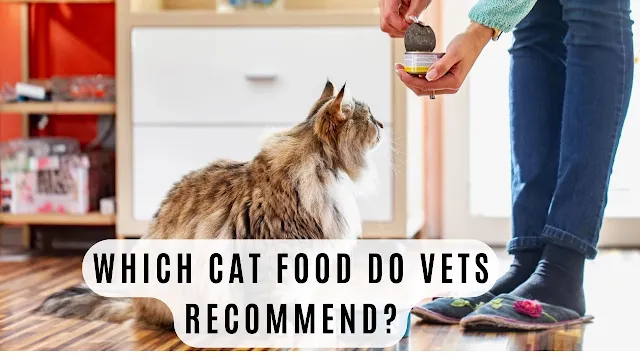Which Cat Food Do Vets Recommend?
Choosing good cat food is one of the most important aspects of caring for your pet. It can help them stay healthy and prevent serious health issues, such as obesity or dental disease.
A cat's diet should consist of a combination of meat and vegetables. Ideally, it should also include a healthy balance of protein and fat.
Veterinarians can provide a lot of valuable information when it comes to your cat's nutritional needs, and it's important to ask for their advice before you make a purchase. They can recommend the best dietary options based on your cat's age, health conditions, and any other factors that affect its diet.
If you want to choose high-quality cat food, vets say the first thing you should look for is a named protein source and no by-products. A higher percentage of animal proteins will be better for your kitty, as they're a more natural source of nutrition.
Another important factor to consider is the ingredient list. Avoid foods with lots of unnecessary ingredients, such as fillers and preservatives, that can harm your cat.
The top pick of veterinarians is Wellness Core Dry Cat Food, which contains high-quality meat, poultry and fish, and other essential nutrients to promote healthy digestion, immunity, and a shiny coat. It's also free from grains, fillers, and additives that may be unhealthy for your cat.
Other popular vet-recommended brands, including Purina Veterinary Diets and Hill's Science Diet, are made from animal and plant proteins, fruits, and vegetables to give cats a balanced diet. They also contain nutrients that help maintain a healthy weight and fight allergies.
Many of these cat foods are formulated as dry, semi-moist, or canned and differ in water content, protein level, caloric density, palatability, and digestibility. The best ones also have an excellent reputation for quality and are easy to find in stores.
Choosing the right type of cat food for your cat can be confusing, but it doesn't have to be. By working with a vet, you can find food that suits your cat's unique needs and ensure they're getting the right amount of vitamins, minerals, fiber, and fat.
Talk to a vet about your cat's unique needs -- for free!
A vet is the only professional with a direct line to your pet's nutritional needs. They have firsthand knowledge about your cat's health, and they understand their medical history.
They'll also be able to recommend a food that's suitable for your cat's specific needs, so you can keep them feeling their best and reduce your vet bills.
Most vets will agree that dry food is the most appropriate choice for most cats, especially those who live indoors. The dry version is a good choice for overweight or obese cats, and it can also help control hairballs.
Vets will tell you that it's a mistake to feed your cat more than the recommended daily amount of food. Unless your cat has a special dietary need, such as food intolerance, he should eat a well-balanced diet of fresh, raw meat and vegetables.
.png)
